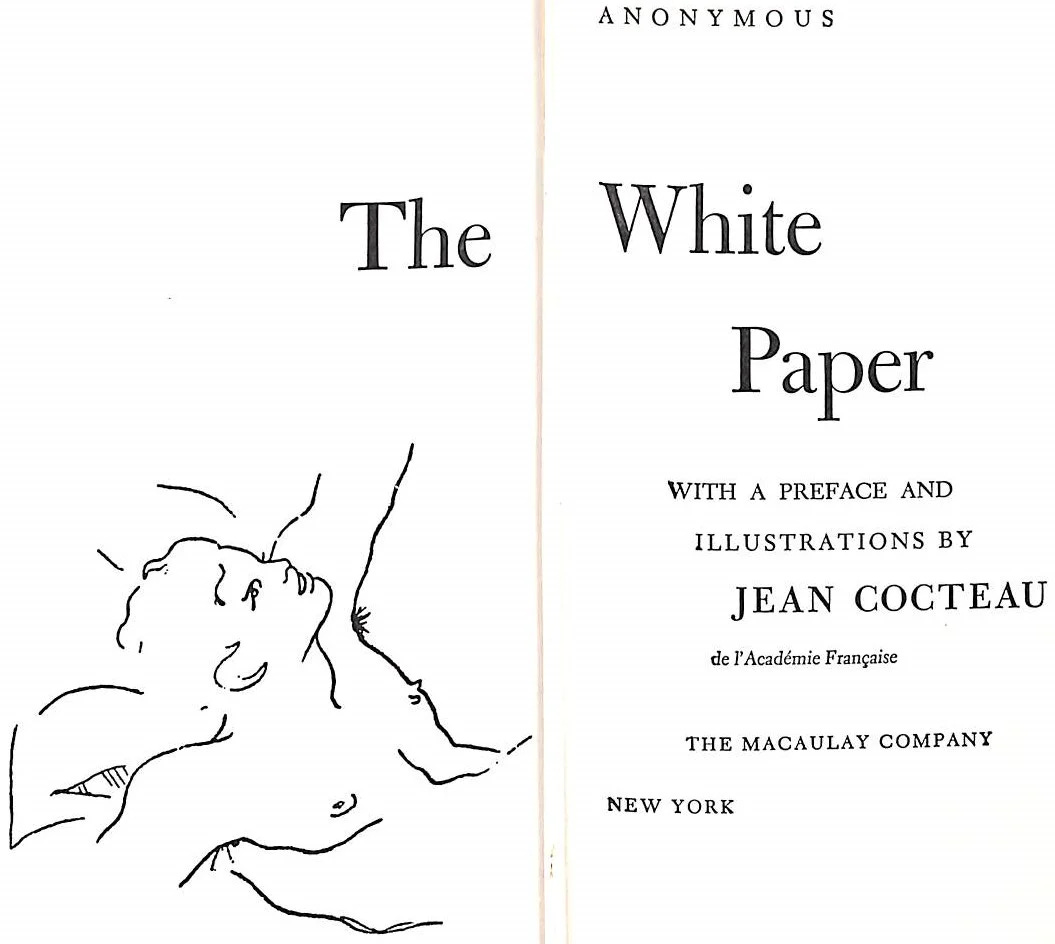A Love of Love
Jean Cocteau's White Paper argued for radical acceptance of queer people.

Jean Cocteau’s most immortal and important piece of writing was one that he never put his name to.
In 1928, a mysterious and short novel called Le Livre blanc was published in a run of just 21 copies. 11 were released to the public. 10 were given to friends of its writer. None bore the name of its author.
Some years later, an update to the book was made. This time, the author added illustrations, and with them, a tacit acknowledgement of his authorship. This is, of course, Le Livre blanc, also known as The White Paper: Jean Cocteau’s semi-autobiographical novella documenting an unnamed narrator’s discovery and acceptance of his homosexuality. Radical then and (unfortunately) radical now, Cocteau took the name of the type of writing usually reserved for sociological argument.



